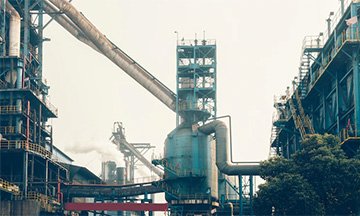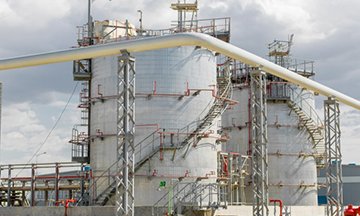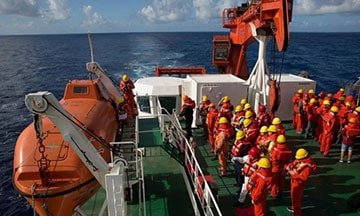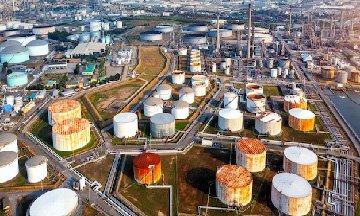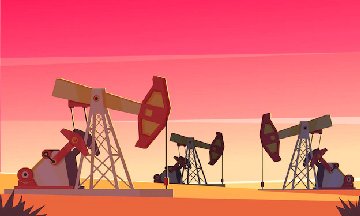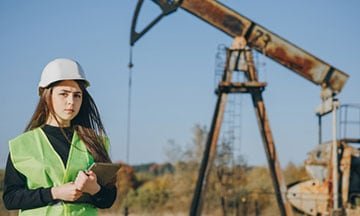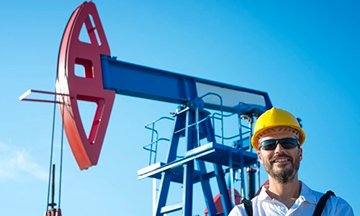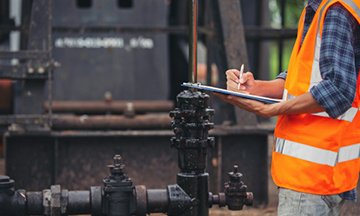Crude Oil and Chemical Tanker Familiarization & Cargo Operations
| Date | Venue | Duration | Fees | |
|---|---|---|---|---|
| 28 Apr - 02 May, 2024 | Doha | 5 Days | $4950 | Register |
| 29 Apr - 03 May, 2024 | Dubai | 5 Days | $4750 | Register |
| 27 May - 31 May, 2024 | Cairo | 5 Days | $4950 | Register |
| 27 May - 31 May, 2024 | Dubai | 5 Days | $4750 | Register |
| 24 Jun - 28 Jun, 2024 | Dubai | 5 Days | $4750 | Register |
| 22 Jul - 26 Jul, 2024 | Dubai | 5 Days | $4750 | Register |
| 19 Aug - 30 Aug, 2024 | Dubai | 10 Days | $8775 | Register |
| 30 Sep - 04 Oct, 2024 | Dubai | 5 Days | $4750 | Register |
| 30 Sep - 04 Oct, 2024 | Dubai | 5 Days | $4750 | Register |
| 18 Nov - 22 Nov, 2024 | Dubai | 5 Days | $4750 | Register |
| 23 Dec - 27 Dec, 2024 | Dubai | 5 Days | $4750 | Register |
Course Overview
The course gives the participants training for appropriate duties concerning the crude oil and chemical tanker familiarization and crude oil operations. The course involves training programs similar to this profession’s responsibilities, such as chemical tanker safety, pollution prevention, fire safety systems and measures, operational obligations and practice. As part of the industrial operations, maintaining the load in the maximum state gets analyzed. The course follows the rules and regulations concerning crude oil, chemical tanker and cargo operations strictly. The system gives a complete understanding of the types of heavy liquids vessels used and the purposes for the variation between them. Most of the cargos get highly specialized, which makes them very costly. The loss of freight due to mismanagement is entirely avoidable if appropriately managed.
What is an oil chemical and gas tanker?
Knowing crude oil and chemical tanker, cargo operations, types of cargo, the management activity, and the dangers they cause makes it easy to lower many of the risks. Some of the hazards that can get reduced include incorrect vessel selection, pollution, and cargo spoiling, making it more effective and price effective operations. The course provides deep insight into cargo operations and the essential aspects of these activities.
What is a cargo of crude oil?
The Crude Oil and Chemical Tanker Familiarization & Cargo Operations course will give you the full knowledge and information concerning the safety and prevention of risks when dealing with cargo operations. Through this course, you will have the right capabilities and skills to work in any cargo operations that will help improve your professional skills that will help enhance career growth opportunities.
Some of the primary critical factors in this course include
- Cargo measurement and care
- Understanding and interpreting the regulations linked with various types of operations
- Identifying the most appropriate vessel
- Dangers linked with various cargoes and how to manage them
- Ballistic activities and optimization vessel discharge aspects
The main emphasis of this Zoe course will be to show the following
- How to monitor and perform safe oil tanker cargo activities that follow the requirements of the legislative
- The things involved in the security monitoring and operations of cargos on board tankers
- Safety, health, and environmental measures when doing jobs on tankers
- The characteristics of various cargoes and the associated hazards
- The variation between chemical, oil and liquefied gas tankers
The equipment requirements for this course include:
- Audiovisual presentation tools
- Newest versions of global safety procedures guide for terminals and oil tankers
- Sample MSDS and cargo data sheets
- Portable gas detector with sample detector tubes for gasses and vapors
- Portable combustible gas indicator
- Portable oxygen analyzer and oxygen meter
- Tank scope for measuring and detecting hydrocarbon vapours in inert spaces
- Respiratory protection tools for emergency escape
- Set of protective tools such as gas and tight chemical suits
Course Objectives
The key objectives of this course are to empower professional’s to-
- Rules of how to reply to emergencies
- Techniques to implement safety precautions and occupational health
- Awareness of dangers associated with safety and health and the how-to prevent pollution of the surrounding
- Know the chemical and physical rules concerning cargo tankers
- The primary limitations of cargo activities by legislative requirements
Training Methodology
The participants attending this course will receive extensive training on the topics covered in the seminar outline with the lecturer using many proven adulthood tutoring and studying methods.
The primary basis of teaching this course is PowerPoint presentation aided by video clips and class-based exercises. An example of the characteristic of the issues and features encountered with the cargos while operating them will get demonstrated at length. The exercises’ basis is on the scenarios that will occur or happen and get compared to actual period occasions. This Crude Oil and Chemical Tanker Familiarization & Cargo Operations course will use the ‘Learn-Review-Apply’ Zoe Training Model.
Organisational Benefits
With professionals undergoing this course, the industry will benefit in the ways mentioned below:
- Assisting to grow team design in cargo control
- Gives an understanding of the safe technique of transportation of cargo
- Illustrates the importance of cargo variation
- Assists in the competence of individuals in a design competence scheme
- Raising personal knowledge of the effect of tanker activities
- It helps in the prevention of surrounding problems and their control if they happen
Personal Benefits
Individuals attending this course will gain through the improved knowledge of cargo management techniques, emergence response methods and HSE challenges.
The personal benefits include:
- Knowing how emergencies happen and how to manage them
- Practising techniques that will assist incident prevention
- Studying methods to ensure vessel knowledge is not compromised
- Raise awareness of the dangers showed by various operations
- Acknowledge the essence of the characteristics designed procedures
- Understand better the operational structures
Who Should Attend?
Many professionals suit The Crude Oil and Chemical Tanker Familiarization & Cargo Operations training. Still, it will highly assist any individual who deals with any factor of crude oil and chemical and tanker cargo activities. The participants may not be directly involved in the profession but will assist even those with a greater level who need to understand the problems with tanker cargo operations. These individuals may include;
- Refinery individuals at the vessel or facility interface
- Vessel professionals wanting to advance in their career
- Technical leaders who help in knowing the maintenance problems
- Vessel characters who assist in selecting the appropriate vessel
- Fleet managers
- Senior management with a high-level role for tanker activities
Course Outline
The course covers the following topics regarding Crude Oil and Chemical Tanker Familiarization & Cargo Operations:
Module 1: Rules and Operations of the Cargoes
- Worksite control
- Safety tools
- Electrostatic charges
- Characteristic of hydrocarbons
- Regulations and codes of practice
- Meaning of hydrocarbons
- Hazards warning signs, COSHH, AND MSDS
- The bulk chemical codes
- National and international laws and regulations
Module 2: Vessel Building and Pollution Prevention
- Construction of Liquified gas tanker
- Construction of chemical tanker
- Construction of oil tanker
- Vessel types
- Impacts of pollution
- How pollution of the marine environment happens
- Safe transfer activities
- Methods of response to marine spills
- Operational needs of chemical and oil tankers
Module 3: The Oil Tanker
- Types of cargo shipped in oil tankers
- Types of an oil tanker in initial service
- Overview of oil tanker structure and construction
Module 4: Chemical tanker
- Summary of the growth of the chemical tanker business
- Types of cargo shipped in chemical tankers
- Types of a chemical tanker in initial service
- Elements of design of chemical tankers
Module 5: Liquidities Gas Carrier Activities
- Brittle fracture
- Electrical safety
- Discharging and leading
- Compatibility and cargo care
- Managing hazards
- Cryogenic safety
- Defining LPG AND LNG
- Hazards and properties
Module 6: Chemical Tanker Activities
- Emergency procedures
- Monitoring methods
- Cargo hazards
- Toxicity
- Corrosivity and flammability
- Discharging and loading
- Compatibility and cargo care
- Correct handling of cargo and safe carriage
- Loading procedures
- Cargo care during transportation
- Conduct Ballast activities
- Tank cleaning activities and residual disposals
- Test for cleanliness and gas-free cargo tanks
Module 7: Oil Tanker Cargo Operations
- Components of cargo system
- Discharging and loading cargo
- Tank cleaning and cargo care procedures
- Discharging and leading operations
- -Inert gas system (IG)operations
- Purging, inerting, and gas freeing
- Crude oil washing
- Procedure for port arrival
- DE ballasting and ballistic activities
- Crude oil washing
- Gas freeing and purging activities
- Common procedure for joining of carriers
Module 8: Health Safety and Emergency Procedures
- Overview of the general safety rules
- Shipboard emergency procedures
- Terminal emergency activities
- Implementation of control measures for the enclosed safety space
- Individual safety and protection tools
- Health hazards linked with chemical cargoes
- Risks related to petroleum cargoes
Module 9: Basic Scientific Concepts
- The principles of electrostatics
- The code of the management tank atmosphere
- Chemical and physical characteristics of chemical cargoes
- Chemical and psychical elements of petroleum cargoes
